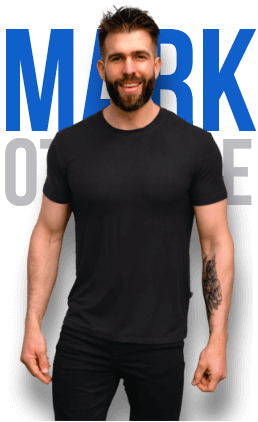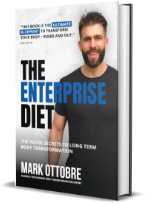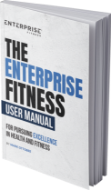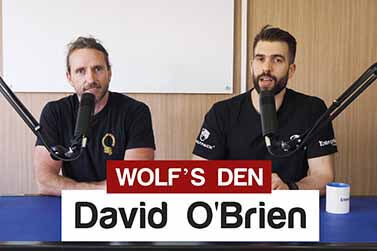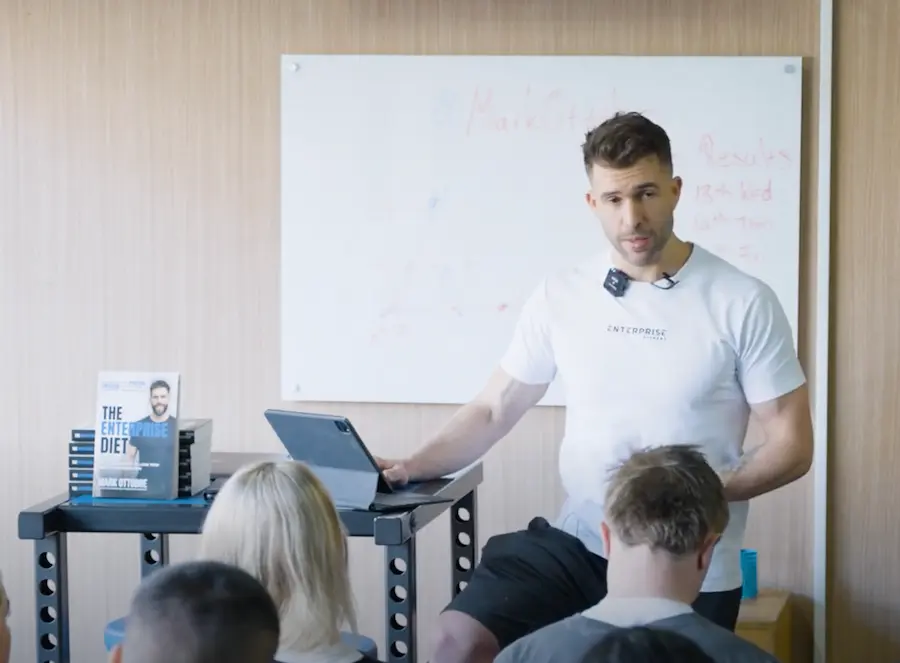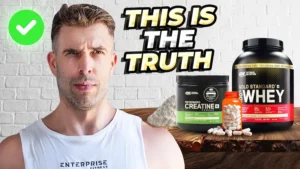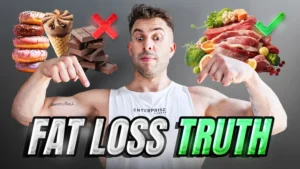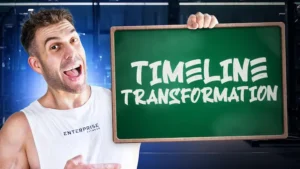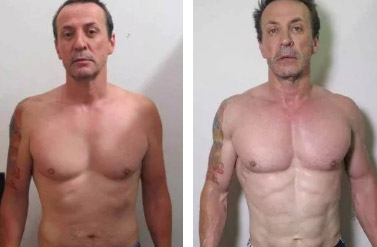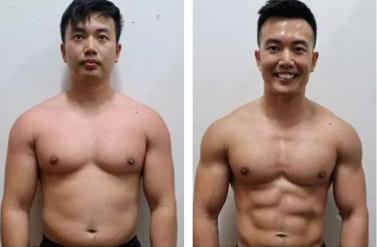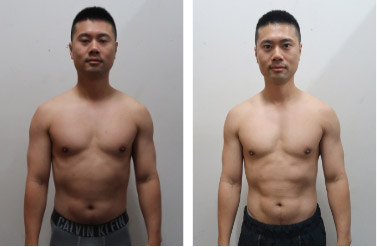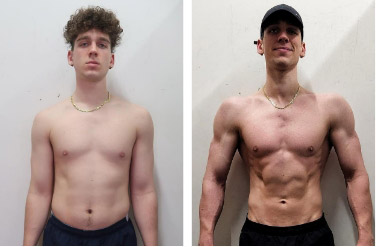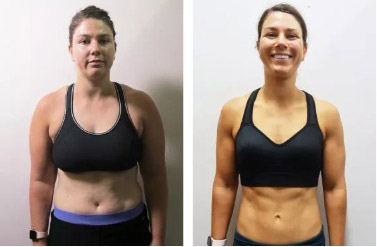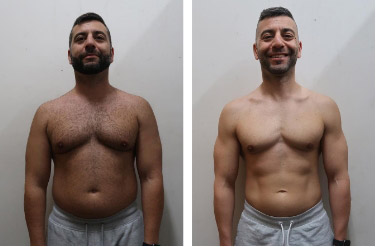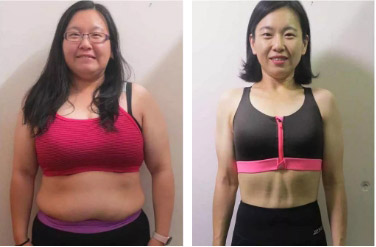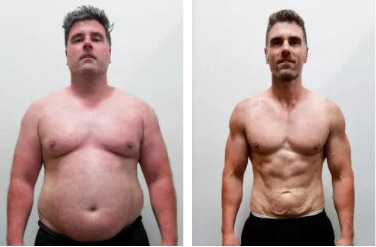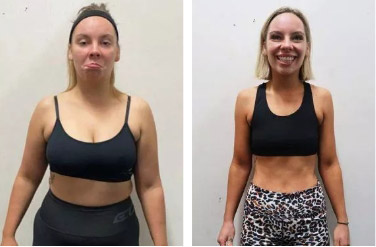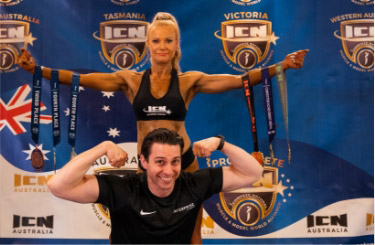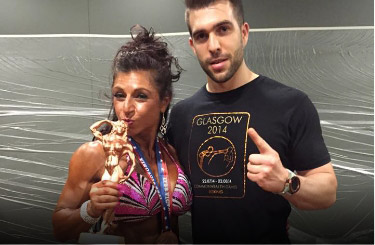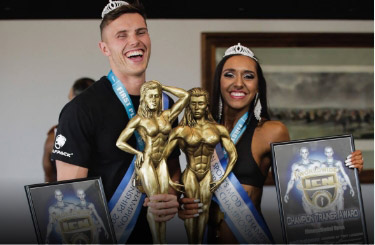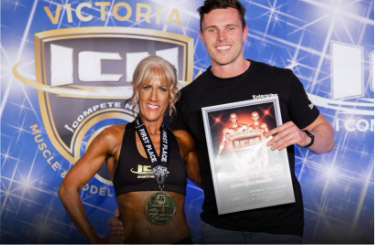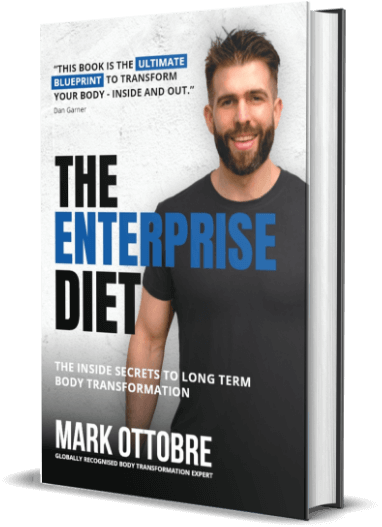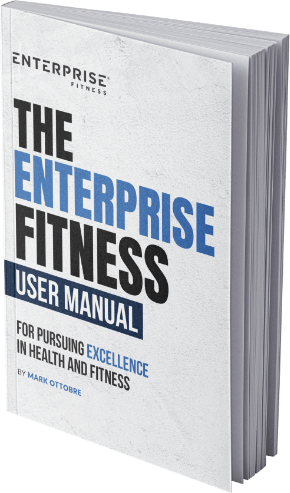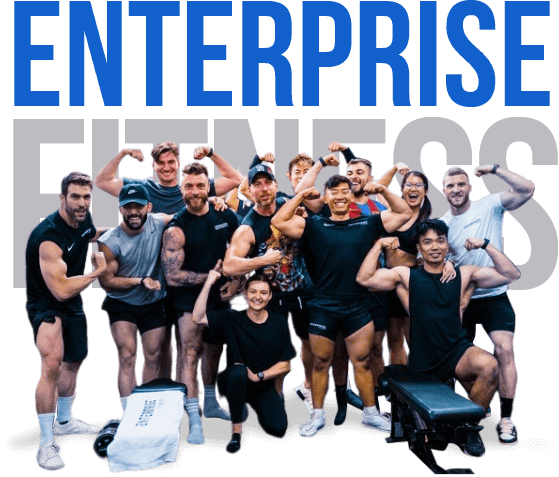Soy is the poster child for pseudo health foods.
High in protein, low in saturated fat and supposedly has the ability to feed the world. What health conscious, eco-activist wouldn’t want soy on their plate?
An educated one.
Kaayla Daniel, the author of The Whole Soy Story, is one of the industry’s leading authorities on this so-called superfood.
Spend an hour with Mark Ottobre and Kaayla Daniel discussing…
- Thoughts on COVID19
- The Fermented Cod Liver Oil fiasco
- Her falling out with the Weston Price Foundation
- Problems with Soy
- High Phytoestrogens/Isoflavones
- Phytic acid (affects mineral absorption)
- Mould (from storage of mass produced soy)
- Genetically Modified
- Glyphosate
- Industrial farmed which practices are bad for the environment
Please support the podcast by leaving a review on iTunes and subscribing to our channel on YouTube.
You can find all our links here: https://bit.ly/3bAvd6q
Watch the podcast on SoundCloud and iTunes
Related Posts
- An Adult Conversation About Going Vegan & Eating Meat
- The Perfect Diet For Optimal Body Composition | Wolf’s Den
- How To Restore Gut Health | Wolf’s den with David O’Brien
Transcript From The Whole Soy Story with Kaayla Daniel in the Wolf’s Den Video
(This transcription may contain errors)
Mark Ottobre:
Hello, and welcome to The Wolf’s Den, my name is Mark Ottobre. In today’s interview, I speak to Kaayla Daniels. Kaayla has been on my list of people to interview and have on the podcast since 2010, since I started podcasting. Kaayla wrote the book, The Whole Soy Story: The Dark Side Behind America’s Favorite Health Food. That book has been widely considered as the seminal text on soy outlining all of its issue and what to do about it.
It’s with absolute great pleasure that I get to sit down with her.
In this interview obviously we talk about soy. We talk about the Weston A. Price Foundation and what happened with her. She used to be the vice president there with Sally Fallon and the fall-out. We also talk about the fermented cod liver oil fiasco. With that said, let’s get to the interview. You are sure to enjoy it. See you on the other side.
Mark Ottobre:
All righty. Firstly, thank you, Kaayla, for joining us today in weird circumstances with COVID-19 around the world affecting really every small business, big business and the way we’ve been doing things. How has COVID affected you?
Dr. Kaayla Daniel:
Well, I work mostly with clients by phone or by Zoom, so that hasn’t changed, but people are frightened about money. They’re putting aside a whole lot of their priorities, including their own health sometimes. Postponing until we see what’s going to be happening.
Mark Ottobre:
Yes. What’s the majority of the work that you do, like on a day-to-day basis? What is the lion’s share? Are you just consulting with clients?
Dr. Kaayla Daniel:
Well, it’s a mix. I write books. I’m doing blogging. I see clients, private clients. Mostly working with people all over the world and mostly online with Zoom. The lack of being able to meet people across the table in my office, that’s not affecting me a lot.
Mark Ottobre:
I imagine that a lot of your clients obviously are coming to you for nutrition and for health. They probably got a lot of questions on this time, like COVID, and the fluid things. What advice have you been giving them and when people ask you about COVID?
Dr. Kaayla Daniel:
Well, I’d say what I’ve been recommending all along is going to help people protect themselves, fluids that are high in vitamin A for example. Foods that are protecting our immune system, good fat. Not a lot of changes that way. I generally am working with people who are already on a real food ancestral type of diet. We’re usually tweaking that.
Mark Ottobre:
What are tweaks are you making at the moment? You said supplementing your vitamin A. I know one of the common go-to for vitamin A is cod liver oil. Are you using cod liver oil?
Dr. Kaayla Daniel:
I often do. It depends on the client. With some I’ll be using say vital proteins, liver castles. I do recommend eating liver a couple times a week, real food. People don’t want to do that. Some people do prefer the cod liver oil solution and that’s an option. If people are doing cod liver oil, I am encouraging a natural cod liver oil that has vitamin A and vitamin D. In a ration, it’s going to vary from 10 to one to 20 to one, depending on what type of cod we’re talking about and where they’re swimming. But a good cod liver oil will have both vitamin A and vitamin D.
Mark Ottobre:
Are you ever running labs to check in people’s vitamin D, vitamin A, what their status is? Do you look at any ratios between vitamin A and vitamin D?
Dr. Kaayla Daniel:
Yes. Very typically people will do labs for vitamin D, but not for the vitamin A. A lot of people are jacking up their vitamin D levels to very, very high levels. But because their vitamin A is not in an appropriate, which would be more like 2.5 to one in terms of lab work, that can be a problem.
Mark Ottobre:
2.5 vitamin D to one vitamin A?
Dr. Kaayla Daniel:
No, the vitamin A should be higher.
Mark Ottobre:
Oh, right.
Dr. Kaayla Daniel:
We see a lot of people they are basically on a good diet, but they’re still low in vitamin A. Often they’re supplementing vitamin D to artificially high levels. That doesn’t work long-term.
Mark Ottobre:
Yes. One of my friends and mentors, Bob Gill, who is the best muscle tester I’ve ever come across and had the pleasure of learning from him, he was telling me you can pretty much … Total vitamin D is somewhat sometimes irrelevant. You need to look more at what is the ratio of vitamin A to vitamin D. You can actually boost up vitamin D quite high, but so long as vitamin A is adjoining, is synergistic because they’re obviously synergistic nutrients. You’d agree with that?
Dr. Kaayla Daniel:
I would agree with that, yes.
Mark Ottobre:
You used to be part of the Western A Cross Foundation and there were kind of stuff that happened with the fermented cod liver oil. Can we touch on that?
Dr. Kaayla Daniel:
We certainly can. I started to question the idea of a fermented cod liver oil. It just didn’t make sense. I mean, you can’t ferment oil. If you try to ferment oil, it goes rancid. If you try to ferment protein, it goes putrid. The only thing you can really ferment are carbohydrates. There’s almost no carbohydrates in a cod liver. This was not adding up. I became concerned because I was hearing about a lot of people who were doing well on the products and started to investigate. In fact, the product is extremely rancid. It’s not early rancidity, it’s long-term rancidity. It’s the kind of oil that the Norwegians actually use to paint their houses.
Dr. Kaayla Daniel:
I mean, it has gone so rancid it’s actually stable. A good cod liver oil or actually we could be talking here about any oil, it’s supposed to go rancid. It’s our job to make sure it stays away from oxygen, heat and light so it stays stable and doesn’t go rancid. But it’s like having a fish on your counter. It’s going to go bad. It’s supposed to go bad. It’s like a twinkie that doesn’t go bad.
Mark Ottobre:
When you brought this to the attention of the group, there was just general pushback?
Dr. Kaayla Daniel:
There was. People get very stuck in their ideas and their recommendations. People don’t like to admit they’ve made a mistake. I first brought it to their attention and they basically told me I was stupid, that I should talk to the manufacturer who would straighten me out. What I did instead was I talked to the world’s leading fish oil and oil experts, and learned everything I can learn and had samples of it tested at the world’s great marine oil laboratories. The people told me, and I’m talking about the world’s greatest fish oil experts, said it was the most rancid oil they had ever tested.
Mark Ottobre:
Wow. Wow. The group were just very close-minded to these findings and didn’t want to accept from what I understand?
Dr. Kaayla Daniel:
Unfortunately, and I went forward and published a whistleblower report. But sadly, the product is still on the market. It’s still being recommended by the Weston A. Price Foundation. We’ve had hundreds of people who have been very ill from the product, who have reported cause and effect. They were on the product. They were sick. They went off the product. They got better. They decided this was crazy. Went back on the product, they got sick again. That kind of report, which is anecdotal evidence. In the case of some naturopathic doctors who shared their finding and have case studies.
Dr. Kaayla Daniel:
We’ve also got a number of deaths in the community, fairly young people. It’s really sad that there is this problem. It gives the whole real food community a bad name.
Mark Ottobre:
It unfortunately does. I noticed that on your blog as well there was … I forget what the exact cancer. It’s brain cancer. Usually it’s like less than 1% of the population. In the Weston A. Price Group, it’s affecting around 10%, that people have actually gotten this cancer. You put it down to a link at least a causation to the fermented cod liver.
Dr. Kaayla Daniel:
It’s a pretty significant correlation. People always point out with brain cancer that it’s linked, of course, to cellphone usage and so forth. Absolutely there’s no doubt about that whatsoever. We still, as you pointed out, with the Weston A. Price community the number of people with brain cancer or who have died from some form of brain cancer is way higher than one would ever expect, and one would get among people who are using cellphones.
Mark Ottobre:
Yes. Weston A. Price, the foundation, everyone involved, including your work when back in 2005 to 2012 has been a big influence in the way I view nutrition, and obviously I promote nutrition physical generation as one of the go-to books that everyone should read in nutrition. Now that you’ve stepped back from the organization and you’re able to look someone who’s been in the trenches, but also you’re able to look what are some nutritional things that you’ve seen from the organization itself that you think, “Well actually this isn’t the best practice from the high fat recommendation from the saturated fat.” Have you changed your views since leaving?
Dr. Kaayla Daniel:
There’s a lot that I’ve questioned, but I first want to clarify that there’s a difference between the Weston A. Price Foundation and the price Pottenger Nutrition Foundation. Now the Price Pottenger Nutrition Foundation has all the archives of Price’s work, also of Francis Pottenger’s work and Melvin Page and a number of other nutrition pioneers. And they’ve done accurate information about what Dr. Weston A. Price actually said. About fermented cod liver oil, he never said one word. And in fact when you look over his research studies, his letters, his books, the talk he did about cod liver oil was that he found it extremely at risk for rancidity. And his recommendations were very interesting and have nothing to do with what’s being recommended at the Weston A. Price Foundation by Sally Fallon Morell.
Mark Ottobre:
I didn’t know the domain differences westernaprice.org and westernprice/pottenger. There are two completely different domains, aren’t they?
Dr. Kaayla Daniel:
They are, so the official one is Price Pottenger Nutrition Foundation. But the Western A. Price Foundation talk to a whole lot about Western A. Price, but not all the information is accurate. There’s a whole lot of opinions of Sally Fallon.
Mark Ottobre:
Right, right. And from a nutritional point of view, since you’ve stepped out of the organization have there been things that you’ve changed your mind on specifically or rethought?
Dr. Kaayla Daniel:
Well, there are a number of things I questioned. One of the things that might be of interest to your audience is, I’m very interested in fitness and staying fit. And it’s not just about food we eat. It’s about our spiritual lives. It’s about the fun we have. It’s about the exercise we’re getting. There are a number of things. And Dr. Price’s work didn’t specifically talk about exercise, but we know darn well that those people were walking every day they were physically very, very active right up until old age.
Dr. Kaayla Daniel:
So the food was right, but also the lifestyle is good.
Mark Ottobre:
What other things have you been questioning, the saturated fat? Is that ever coming to question for you about the amount?
Dr. Kaayla Daniel:
The amount is a very interesting question because I’m very interested in bio individuality. And while I do think we all need some saturated fat, including some animal fat because you’re only going to get the vitamin A and animal fats. So coconut oil may be a perfectly good oil and it’s saturated. And that’s Fine, but you’re not going to get any vitamin A in there. So we do need some vitamin A.
Dr. Kaayla Daniel:
But in terms of the diet for people, I recommend different diets for the different clients I work with. And this is in accord with some of the research that Dr. Nicholas Gonzales did and before him, Kelly’s research, working with cancer patients and discovering that there was not one size fits all. So we’re basically looking at a number of diets with a vegan diet on the one hand, and a totally carnivorous diet on the other, and admittedly very few people in either camp. So very, very few pure vegans on the one end, with most of us needing at least some animal fats and some animal protein, and usually every day. So some people would be more high fat, more high protein than others. Some more plant based but still some animal products.
Dr. Kaayla Daniel:
Coming up with a system to determine exactly the right formula for each person is what’s engaged me at the moment.
Mark Ottobre:
Any insights into that system? Because I totally agree with that notion, and I 100% support that. One of my big influences was a guy named Charles Poliquin, who’s probably a pioneer in the strength community. He had what was called the bio signature, and he would talk about the upper back fat. And if you do the upper back fat, and if it was below eight naturally, they were a carbohydrate type. If they’re above eight or around 10, or if they’re, let’s say, like 18, when I say naturally as in a normal diet, or this is where they normally would sit. So they’re reasonably lean, but their upper back fat is still high. That would be a high fat, high protein diet.
Mark Ottobre:
So you’d see a lot of Samoans, Torres Strait Island is these kind of Maui’s New Zealand. So they would present more as you have a high fat type, whereas you’d have people who are kind of bit more ectomorphic as your high carb type. Is that a kind of way that … What else is involved in terms of your system?
Dr. Kaayla Daniel:
Well, the system Dr. Kelly and Dr. Gonzales were using involves a very extensive questionnaire and it’s very complicated with different questions, getting different weight. So the calculations are very time consuming. But I think what Charles was doing very interesting, and I spoke at one of his conferences, I had such a wonderful time there, and I enjoyed talking with so many people there. When some of the fitness questions that I would ask would be things like people who like Bikram yoga, for example, that kind of hot yoga. They would be more likely on the plant based and people who try it and they think it’s the most miserable thing. And I’m in that camp, were more likely to be on the carnivorous end.
Mark Ottobre:
Would you ever look at saying HBIAC, as a long term marker of glucose sensitivity to then look at that and go, “Right. Well, it’s fairly high at the moment, they should definitely be in a high fat, low carbohydrate diet.” Is any of that blood markers is come into play?
Dr. Kaayla Daniel:
Well, what gets tricky is none of those markers are completely reliable. So there’s a lot of looking at that in conjunction with everything else and trying to figure out what’s going on exactly.
Mark Ottobre:
Yeah. Yeah.
Dr. Kaayla Daniel:
With athletes, some of those numbers are naturally going to be different. And I don’t pretend I have all those secrets nailed down at the moment. The working with elite athletes is something that’s new in my career and just curious about how that kind of activity affects things.
Mark Ottobre:
Right. I do have a question because you were on the topic of fermenting cod liver oil and this is kind of a side topic. But I know if you’ve ever looked at any studies around protein powders, and when you heat them. Have you seen anything around protein powders and people bake with them and these kind of things. I’ll be doing my own research at the moment and haven’t necessarily found anything that is 100% conclusive around heating protein powders, and denatures proteins. But when it comes to white protein, it’s already highly processed.
Dr. Kaayla Daniel:
Yeah, I’m going to answer that a little indirectly. First of all, I’m a big fan of real food and not doing protein powders at all. But I’m also realistic. I know there’s a lot of busy people they want their shakes, they want their bars. I will encourage real food, but sometimes that’s not what people are going to do. The research I’ve done on protein powders was mostly connected with the book I did the whole soy story, the dark side of America’s favorite health food. My biggest concern, of course, would be the soy protein powders because they’re all the problems with soy and all the problems that go with any soybean kind of product compounded immensely by the turning it into soy protein isolate soy protein concentrate, or any of those highly fractionated highly processed. Heat temperature chemicals the whole thing and people who start doing that as part of their fitness programs will often start to have their health really tank.
Mark Ottobre:
Did you look at anything specifically with whey or is it just more your soy?
Dr. Kaayla Daniel:
I didn’t research whey so much except where some of the studies usually they would compare casein which is bad product with soy, which is a bad product and maybe the soy might come out looking better just because the casein is so bad. So very few of those studies would actually use whey because way would come out better than soy, and soy industry sponsored study, they’re not going to use whey.
Mark Ottobre:
A hundred percent. So, yeah [crosstalk 00:19:06]. Yeah, sorry.
Dr. Kaayla Daniel:
With whey would be the way it’s processed. And really I’d rather see people say making something like Vince gironda would do with raw eggs and raw milk and some gelatin in there. So we’re primarily talking about real food there.
Mark Ottobre:
Yeah, a hundred percent. I totally agree with that. In the industry obviously, a lot of people do look at when they think of the word supplements, they think of protein powders, fat burners and pre workouts. When you and I think of the word supplements we’re thinking vitamins, minerals, herbes, specific amino acids to really get a result. If it’s anything but the fat burners and protein powders and weight loss pills, but I digress.
Mark Ottobre:
One of the reasons I’ve wanted to interview you for a long time. I always wanted to have a podcast you for a very long time, since I first saw and read The Whole Soy Story and you touched on it before. I get a lot of questions on soy all the time. And one of the things is, I’m always finding myself referring to you and your book. So I thought, it’d be a great opportunity to connect and almost 15 years on from when you first publish the whole soy story, see what’s new, what else you found, what changes you would make from the book and all of that.
Mark Ottobre:
So, suppose to begin and outlay the problem. I was going to the problems with soy, the way I’ve seen it from looking at the issue, from my understanding the problems with soy is the phytoestrogens. Naturally the soy it’s an estrogenic by itself as a plant. And you’ve seen studies on that where they’ve compared chickpeas to … I think a Canadian researchers chickpeas compared to soy, and soy had nine parts of estrogen whereas … Sorry, chickpeas had nine and soy, the soy bean had over 100,000. You’ve got the mold from storage, you’ve also got genetically modified. You’ve got the glyphosate that it’s sprayed on. And it’s also bad for the environment because it’s heavily it’s a mono crop, and there’s a lot of resources that go into that.
Mark Ottobre:
From that pitcher, what am I missing? I know there are some things with mineral absorption that comes into play as well. But there are six main issues that I see. What else am I missing from that pitcher?
Dr. Kaayla Daniel:
Well, as you pointed out, there’s multiple issues. There’s the estrogen issue and also with the imbalance with just testosterone being blocked and some of those issues. The mineral blockage that has to do with soy containing the phytates, so it’s blocking mineral absorption. There’s something called protease inhibitors, which make it hard to digest protein. Soy is one of the top allergens, so a whole lot of people are actually allergic to soy. The good news for them is they avoiding it, they have more immediate reaction. I would say those are the main issues. I mean, there’s multiple compounds in soy and most of them are not helpful. But this is the nature of something as plant base that the plant cannot flee, it cannot fight. So the plant has to fight with chemical warfare.
Dr. Kaayla Daniel:
So plants in order to survive, evolution provided them with things like these estrogenic compounds and so forth. So even if the plant was eaten, the plant would create health problems in the predators so the plants relatives could survive. So it’s a total warfare.
Mark Ottobre:
I hope you’re enjoying this episode of the Wolf’s Den, brought to you by our good friends at personaltrainermentoring.com. So if you’re a personal trainer, looking to level up your business and career, head over to personaltrainingmentoring.com they have a free $500 gift packed ready and waiting for you. A digital gift pack that contains a free course all about how to screen and assist your clients. The course is over two hours long, gives you the ins and outs of screening and assessment. Also, included in the pack a three ebooks all on how to make more sales, get more clients and basically get better results. So if you’re a trainer, head over now, personaltrainermentoring.com, leave you details and get on the fast track to success.
Mark Ottobre:
Are you looking to get into the best shape of your life, are you looking to lose that last five, 10 or even 20 kilos? Well I founded Enterprise Fitness, well I should say I started personal training in 2006. And Enterprise Fitness has been evolution of my career and finally is brought me to this point of opening up this facility here. And that’s this facility is dedicated to bringing you the very best standard of personal training burn on. We have trained over 250 champions in competing and in a variety of different sports, as well as quite literally thousands of before and after transformations, helps people get in the very best shape of their life. And Heck, we’ve even educated a stack of trainers throughout the world. This has become a travel to destination.
Mark Ottobre:
So folks, if you are in the Melbourne area, hit us up, it’s melbournepersonaltrainers.com This is the place to train, you can email us at [email protected] or the website is melbournepersonaltrainers.com, and make sure you check us out on Instagram as well. Reach out to us we’re here to help. Again, this is the place you want to be if you’re serious about your fitness and physique goals.
Mark Ottobre:
You said it was an allergenic food for a lot of people. Why is that?
Dr. Kaayla Daniel:
Well, I mean, some people are allergic to peanuts. I mean, people are allergic to a whole lot of things. So it’s just one of the top allergens.
Mark Ottobre:
So in saying that, when you look at soy, do you feel that soy is one of the biggest issues in terms of nutrition today. I know that there’s gluten genetically modified food, the glyphosate issue that people talk about. But I know in 2005, you chose to pick on a topic, which was obviously soy which you wrote your book about. Now, 15 years later, do you see it as a … Would you dovetail and go into a different topic, if you were to rewrite the book?
Dr. Kaayla Daniel:
I think the book was important. What it’s done is people in the health food community are aware of soy to an extent they never were before. Now a few of them are thinking, “I eat organic soy, so all these issues with genetically modified are a not an issue.” But the truth is, even if it’s an organic soy bean, it still contains the phytoestrogens and the phytates and the protease inhibitors and all of that. So it’s still a problem if it’s organic.
Dr. Kaayla Daniel:
But in general, what the health food industry has done is they’ve shifted from soy protein to pea protein and I’m not sure that’s much better.
Mark Ottobre:
Yes, really? So what’s the problems with pea protein?
Dr. Kaayla Daniel:
Well, I haven’t written a book on pea protein and that there isn’t the extensive body of research that was done with the soy. And with pea protein, if people have a here and there, I would not think it’s an issue. But if people are having pea protein shakes every day, I would think that could create some of the same problems. And for some of the same reasons with the soy, and with-
Mark Ottobre:
So does the [crosstalk 00:26:36] have estrogenic effects?
Dr. Kaayla Daniel:
Would have some and certainly the other things. Any way you look at it, it’s very highly processed.
Mark Ottobre:
Yes. So where does the estrogenic effects with pea protein come from?
Dr. Kaayla Daniel:
You mean the benefits of the protein or?
Mark Ottobre:
You said with pea protein, you’d put it almost in the same class as the soy proteins. So soy obviously has the effect of being high as the plant is high. So it’s a high estrogenic plant by itself. Pea protein, are you getting the estrogens from pea protein? Or is it the other factors like the phytic acid mineral absorption, genetically modified? What are the specific problems that one would have from the pea protein compared to say the soy?
Dr. Kaayla Daniel:
Well, as I said, I haven’t done a book on it. And there are not hundreds and hundreds of studies taken by the US Department of Agriculture, and other researchers. So the studies are not so available.
Mark Ottobre:
Right.
Dr. Kaayla Daniel:
So perhaps speculating somewhat here, but the fact that it’s a highly processed product would make me wonder about it to start with. And it’s going to have … I mean, if we look at all of these different beans, whether it’s chickpeas or soy or some of these others, there’s going to be some problems. There’s going to be nutritional deficiencies in the plants. So they’re going to be involved somehow in chemical warfare.
Mark Ottobre:
Oh yeah. A hundred percent.
Dr. Kaayla Daniel:
So let’s all be cautious.
Mark Ottobre:
Yeah. Do you do worry about with soy or even gluten, one of the mechanisms that’s often talks about gluten is that it causes leaky gut, or at least causes the tight junctions to open, which then increases intestinal permeability. Now with soy, if you add gluten to the diet, you’re getting soy. Your immune system is now responding to soy because of increased permeability. Do you see the same problem say like with the all the products that are basically … If I understand your point correctly, it’s because a lot of the products are highly processed. And if someone has leaky gut and intestinal permeability, again, can create immune issues. And the immune issue is going to manifest basically based on the person’s genetic, I suppose, deficiencies or genetic weakness. Is that mechanism correct? Or am I missing something from the picture there?
Dr. Kaayla Daniel:
I think that’s basically correct. Of course, on a practical level, would I be recommending is the more people include variety in the diet, the less trouble they’re going to get into. So an occasional pea protein shake, I wouldn’t particularly worry about for most people. But if people are every single day doing this kind of shake, and they’re not eating real food, they’re upping their chances of running into some problems.
Mark Ottobre:
15 years on from publishing the book, looking back, what would you add to the book now? Or what are some things that you like, “Oh, I wish I added the chapter on this.” Is there anything that you look back or is the book a complete body of work?
Dr. Kaayla Daniel:
Well, a year or so ago, we had a book come out in German. So I had a little chance to update, and the main thing that needed updating was where things stand with the FDA in the health claims made for soy. There’s been surprisingly little research being done in the last few years. It’s like it was done before. So there wasn’t a lot of updating in terms of the research.
Dr. Kaayla Daniel:
Main thing just an update on the health claim and that is going out just about everybody’s recognized at this point that there is not a consensus, that it’s not a health food. Now a lot of people think it’s not harmful, but at least they’re recognizing that it’s not going to prevent heart disease.
Mark Ottobre:
What prompted you initially to rip open soil and do an expose on it?
Dr. Kaayla Daniel:
Well, I sensed that something was off. I was reading all these headlines that had phrases like, “The joy of soy and the soy of cooking.” And they were proposing the soy could cure everything from cancer to ingrown toenails. And the claims just seemed too much … They didn’t seem believable. And then I started looking around and I discovered soy is considered a medicine more in Chinese medicine. Ayurvedic medicine, they only recommend soy for prototypes, who can digest something that’s basically pretty indigestible. I started finding that cancer clinics get wonderful results such as Dr. Gonzales, his work or the Garrison Clinic that they said that soy was on their do not eat list. And I kept thinking, “Okay, if soy is so wonderful, why are these doctors saying do not eat it?”
Dr. Kaayla Daniel:
So I started looking at the research and initially I thought, “Okay, there’ll be some research. I can wrap this up in about six months.” And instead it was more like five years.
Mark Ottobre:
Right, right. One of the things I want to touch on is, my father has passed away. He passed away from prostate cancer. And I remember going to a guy, Professor Avni Sali, who’s in Australia, he paid for a consult with him which was quite expensive. He founded the National Institute of Integrative Medicine and in the console, he told my dad to eat soy. I almost fell off the table. I was like, “Shit, I paid all this money to go see this guy. And he’s telling my dad to eat soy. I thought this guy was … He got the vitamin D right. That was good. But yeah, the soy comment and I said to him, I go, “But 99% of the world’s soy supplies is genetically modified.” “Oh, get organic.” “But the plan is estrogenic. Why do you recommend estrogenic when prostate cancer is a problem of estrogen and it’s not too much testosterone and it stopped producing testosterone. So why are you giving more estrogen.” And he didn’t really give me a good answer, which indicated to me that there wasn’t … He said, “Well, the research says.”
Mark Ottobre:
What do you respond when people or doctors, whoever are saying, “You know you’ve got breast cancer or you’ve got prostate cancer.” And their actual recommendation is the phytoestrogens in soy are going to actually help the cancer, where the research points out it’s actually phytoestrogens that have actually caused the cancer.
Dr. Kaayla Daniel:
Yeah, it’s a very challenging question. There seems to be this is something that the soy bean it has intelligence that it can go in the body and it can estrogenize where we need estrogen, and it can block it when we don’t need it. But it doesn’t quite work that way with some people that may have a greater blocking effect, with some people it can have a greater estrogenizing effect. There’s a possibility I would see that a pharmaceutical drug where the dosage could be more controlled and you administer it only to those people that can actually benefit from it.
Dr. Kaayla Daniel:
But I’m talking about not as a food, at this point I’m talking about as a drug and you’ve got somebody who is getting it based on some serious lab work, and intelligent doctor and where the dose is really controlled. So instead we have patients being told to eat a lot of soy and okay, so how much? What kind of dose are they getting? It’s going to be different from tofu, to soy shakes, to miso soup. It’s just a crapshoot as to how much they’re getting.
Mark Ottobre:
Yeah. So that’s where the myth comes from. It does have a certain blocking effects, but only in very individual people, and very specific. A lot of cases just boosts around estrogen, which is actually counterproductive to what you’re actually wanting to do. Is that correct?
Dr. Kaayla Daniel:
Yeah, it’s the kind of thing where it might have one effect say on a baby, because of that stage of the lifecycle. And that would be a very negative effect, but it could have more positive effects, say a woman coming into menopause. But it’s really going to vary from person to person. There’s going to be genetic factors. Just many things to think about it. It’s not so simple, as have more soy every day.
Mark Ottobre:
Yeah. One of the things I wanted to touch on genetic modified issues. I followed Jeffery Smith and responsibletalktechnology.org. What have you found with genetic … I mean, my understanding of genetically modified food is obviously soy is one of them. It was originally founded by Monsanto, dumping the Roundup. And then there was algae that was growing that wasn’t resistant to this Roundup. They extracted the gene but then spliced that gene into the soy plant into a number of different things, so then it could be resistant to the Roundup and the pesticide. Now you’re spraying loads and loads of glyphosate Roundup. Glyphosate being water soluble as well, so it gets into the waterways, easy to consume.
Mark Ottobre:
The other thing with genetically modified food that I’ve heard, I don’t know if this is true, but it’s what Jeffrey has been saying is, once it’s sliced into the soy plant, that gene can interact with your microbiome. Which then what happens in the microbiome is the gut now produces pesticides inside the gut. And this is why you see so many gastrointestinal issues now because people are eating genetically modified food. Thoughts, verified, if you agree with those sentiments, what are your opinions on?
Dr. Kaayla Daniel:
Yeah, Jeffrey, I admire him greatly. I’ve had the honor of talking with him at a number of conferences and what amazing work he’s doing. What a good cause. Well, that really comes down to why I say that if people want to eat soy, I say be sure that it’s organic, because everything that’s wrong with any soybean is compounded if genetic modification gets into picture.
Mark Ottobre:
So what do you think there is any space in one’s diet for soy? Because I know one of the references that people give out, I think falsely is Japanese or Japan rather, how Japan, they have a high soy diet. But really, I think you quote in the book, their diets are around three to five grams they would have on diet, and they use it as a condiment to bring out flavor and things like soup, whereas Westerners we use 25 to 35 grams of soy in alternatives like tofu, soy milk. The dose is what makes it toxic, and also they’re having fermented soy, whereas Westerners are having fermented soy, which is a whole host of issues. Also, I think it was written that in Japan, if woman suspected her husband of basically cheating on her or whatever it was, she would feed him soy, because it’s the opposite of aphrodisiac. It’s the anti-disiac, whatever you pronounce that word. What are your thoughts on that?
Dr. Kaayla Daniel:
The places in Japan where they eat the most soy are the monasteries because they noticed that when the tofu consumption went up, the naughty behavior went down. So it’s an age of celibacy, which comes to that whole story about Japanese wives, giving it to unfaithful husbands. So in Asia, and of course, Asian is a huge continent, many different countries, there are many different dietary customs. So consumption obviously varies in all these different countries and from household to house. But on average it’s a smaller amount, say every day in Asia, where the US people are either getting very little or if their home health food kicks or something they might actually be getting a lot. So there’s a difference there.
Mark Ottobre:
Yes. Where did you first discover the Buddhist monastery, that was a link that’s why I actually did it. How did you stumble across that?
Dr. Kaayla Daniel:
I’m not sure, it was quite a while ago. But it’s quite a story.
Mark Ottobre:
It really is. It really is. I also read some studies on … They gave it to cheetahs, soy feed and I think they stopped reproducing completely.
Dr. Kaayla Daniel:
Exactly. I mean, but think about it, the big carnivorous cats put on the soy diet. I mean, dreadful. And [crosstalk 00:38:49] pandas, these little soy wafers at the zoo, the pandas are notoriously difficult to breed.
Mark Ottobre:
Right. And they’re giving them soy?
Dr. Kaayla Daniel:
Yeah, what a surprise.
Mark Ottobre:
All right. So it’s almost comical in a lot of ways because you’ve got the person who’s health conscious. They buy the Fitness magazine and inside the Fitness magazine is a diet that is promoting soy. I imagine you still get clients to this day who either seen you work and they look at soy, and you get people who are constantly on the calories in versus calories out ran. What is your response to these people?
Dr. Kaayla Daniel:
Well, in general, I will attract people who are either recovering from soy and been seriously harmed by it and they find me or maybe their children were on soy infant formula, and they find me. So they come to me with the understanding already that they’ve damaged their health with soy, and they want me to help them recover. So those are some of the clients that I reach. I tend to not attract people who are just on a standard American diet, and talking calories in calories out. I’m more likely to attract people who are already in health conscious, but something’s not working, they’re struggling and they want to go to the next level.
Mark Ottobre:
Amazing. Amazing. Well, final thoughts.
Dr. Kaayla Daniel:
With soy, I would recommend to practice safe soy.
Mark Ottobre:
That means abstain completely? Or is there a little bit of soy that one can have in their diet?
Dr. Kaayla Daniel:
No, people are always surprised when I say that I do enjoy miso soup and occasionally maybe I’ll have a little tofu or vegetarian potluck. But that’s occasional, it’s in the context of a very diet.
Mark Ottobre:
Right. And in terms of people who have had soy for a long time and they’ve damaged their health. What are some steps back from soy?
Dr. Kaayla Daniel:
Well I do the usual some lab work and so forth. They may be extremely low in vitamin A, maybe also vitamin D. Less likely maybe they’ve been supplementing with that, but almost certainly their vitamin A is really low. They may have a lot of the wrong kind of copper. They may be lacking bioavailable copper, but they’ve got toxic loads from a plant based diet.
Mark Ottobre:
Yeah, they have low copper, you said. Low copper. I imagine the zinc will be lower as well.
Dr. Kaayla Daniel:
Low bio available, but they may have a kind of copper they can’t use. So we need to get rid of that. They may have toxic metal overload with aluminum and mercury and who knows. With some people, they were sick to begin with and they went on soy thinking they would get healthy. So I’m looking at not only the damage from the soy, but the damage that they started out with.
Mark Ottobre:
Is it true with soy? Is it true they ferment Western soy, they put a high dose of manganese or something about putting manganese vats and it has a high amount of manganese, and it becomes neurotoxic. Is that a verified thing or?
Dr. Kaayla Daniel:
It’s toxic for babies, so it’s a soy formula issue. For grown ups, we can handle the manganese. It’s not a problem. But one of the problems with soy and from formula, one of many problems is the toxic manganese level.
Mark Ottobre:
Yes. So I know one of the Swiss bulletins went out on the record saying that there is a soy infant formula is the equivalent of giving five contraceptive pills to your infant. When I read it, I thought that’s pretty a dramatic statement that obviously catches headlines, maybe I don’t know, too dramatic or what do you think it’s fair?
Dr. Kaayla Daniel:
It’s dramatic. I think it was three to five, if I remember. I’d have to look that up to be sure at this point. But yes, it’s a significant load of estrogen for a developing child. If it’s a girl baby, she’s going to be way over estrogenized and that has been linked to premature puberty, breast development at very early ages, thyroid problems. Now with the little boy babies, big problem too. Because what a lot of people don’t realize this boy baby in the first days of its life actually has a testosterone surge. Now you wouldn’t expect that. But it’s a testosterone surge that’s the same as a grown man.
Dr. Kaayla Daniel:
During that early vulnerable period, the little baby boy is being programmed to become a man. And if there’s a whole lot of soy estrogens in the system, that’s not going to happen properly.
Mark Ottobre:
Well, it’s been an amazing conversation. I could talk to you all day, and I got places to be and things to do. Your wealth of knowledge, I really want to thank you for your time. You’ve been really generous with your time and contribution to the world of nutrition with your book, The Whole Soy Story. So I thank you on behalf of all nutrition community for doing that because I know how hard it is to put together something that’s so succinct on one topic.
Mark Ottobre:
Finally, if you had a billboard, and you could put a big message out and the whole world would see, what would be your message for people?
Dr. Kaayla Daniel:
Oh. Well, maybe practice safe soy.
Mark Ottobre:
Love that. Love that. Where can people learn more about you if they want to get in contact, do a consult, all those things?
Dr. Kaayla Daniel:
Sure. My website is drkaayladaniel.com.
Mark Ottobre:
Awesome. And that’s the best place to reach out and get in contact?’
Dr. Kaayla Daniel:
Absolutely. I do respond when people email me, and I like to hear from people.
Mark Ottobre:
Yeah. Awesome. Well, thank you for your time and have a great day.
Dr. Kaayla Daniel:
Thank you, Mark.
Mark Ottobre:
Hey, folks, we’re back. I hope you enjoyed that one with Kaayla Daniels. If you like that podcast, make sure you subscribe to us on YouTube. If you’re listening to this on iTunes, do subscribe and leave us a review. These podcasts really do … We really do appreciate every review. It really helps us get on those YouTube chats and share this message with more and more people. And as always, if you do enjoy it, share it with your friends and let people know where the podcast is at.
Mark Ottobre:
How to get in contact with us, you can check us out on Instagram, it’s @enterprisefitnessmelbourne. If you want to check me out, its @markottobre, that’s M-A-R-K O-T-T-O-B-R-E. Seek us on the web, and as always folks, train hard, eat well and supplements smart.
Mark Ottobre:
This podcast is for information purposes only. Statements and views on this podcast are not medical advice. This podcast including Mark Ottobre and the producer’s disclaimer responsibility for any possible adverse effects from the use of information contained herein. Opinions of guests are their own and this podcast does not endorse or accept responsibility for statements made by guests. If you think you may have a medical problem, consult a licensed physician.


